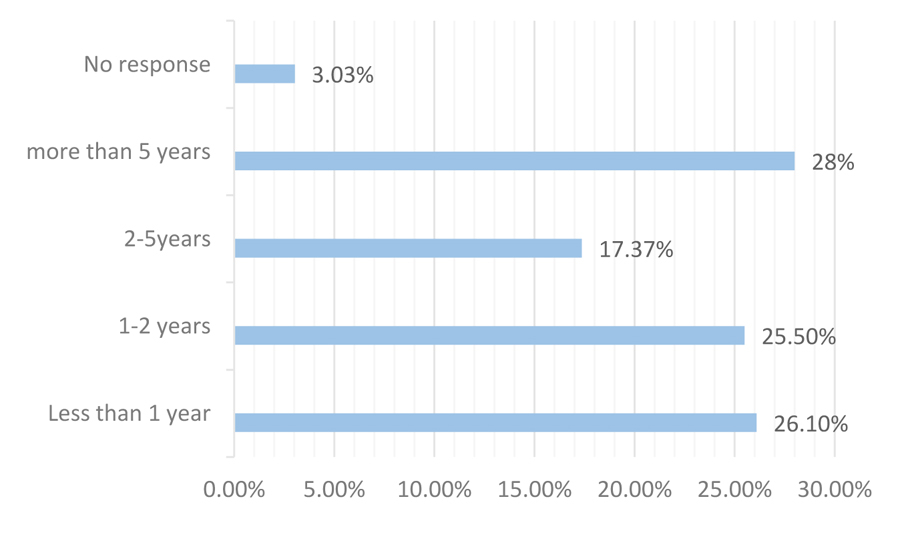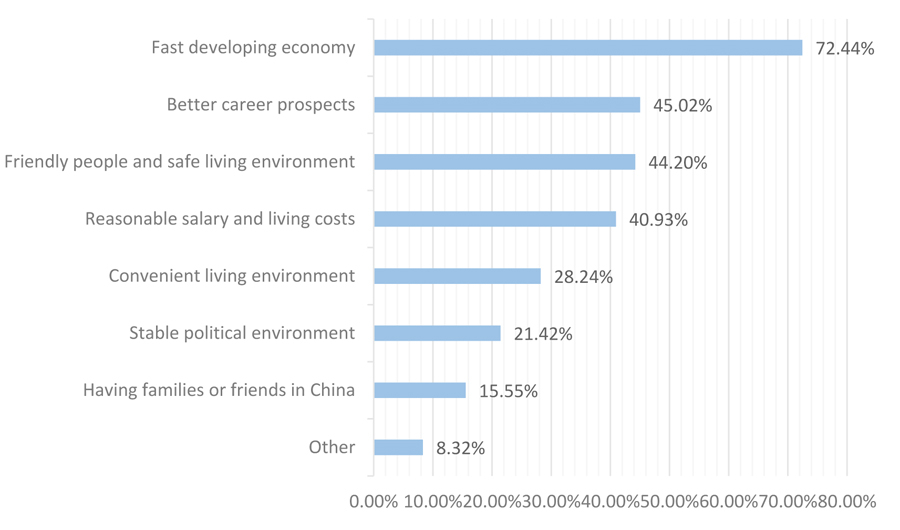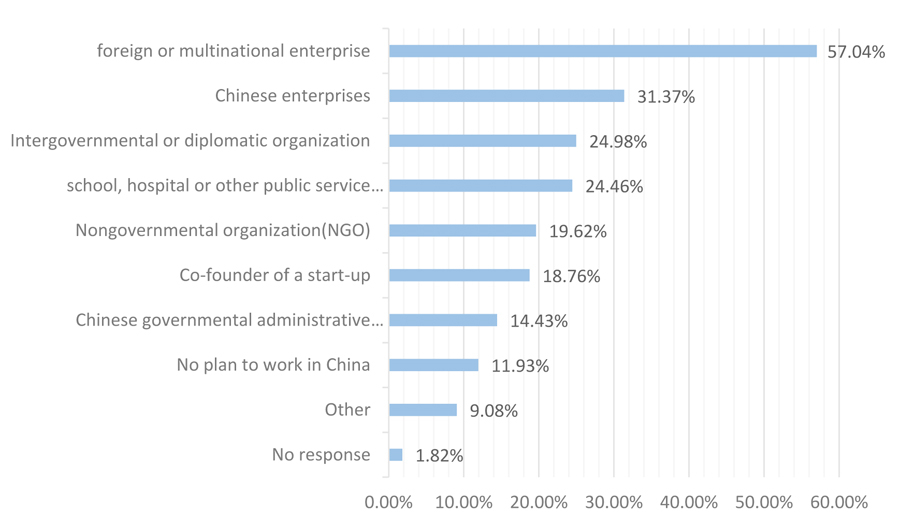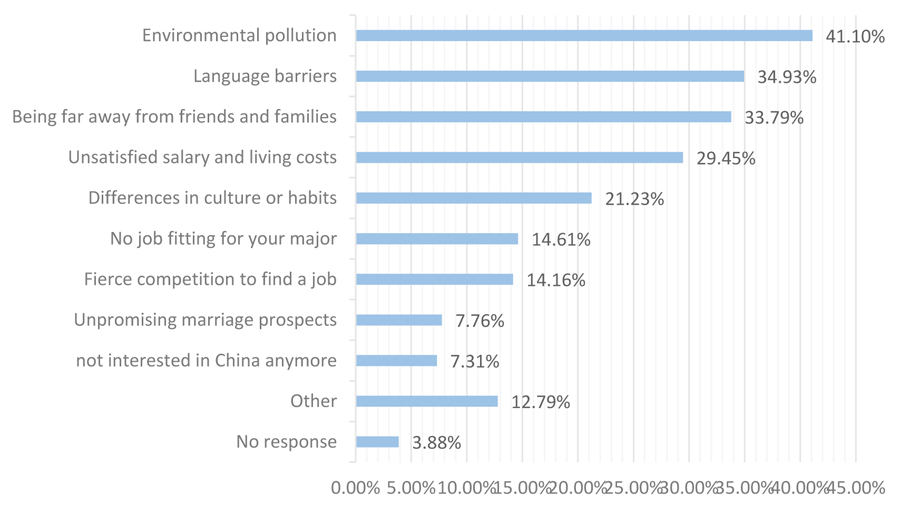
Opinions
10:12, 10-Jul-2018
China's fast-growing economy woos overseas students
Updated
10:05, 13-Jul-2018
CGTN

Editor's note: The article casts light on international students’ employment preferences and the understanding of China's talent policy. It's one of the key findings of a recent report jointly released by the Center for China and Globalization (CCG) and the China Global Talents Society (CGTS).
A recent survey of international students in China found that over 70 percent of respondents cited China's rapidly-growing economy as the most important reason for them to remain in the country and seek employment after graduation.

Familiarity with China's employment policy /CCG
Familiarity with China's employment policy /CCG
The first part of the survey collected data on the characteristics of students who were interested in finding work, particularly those interested in working in China. Data shows this group was predominantly Asian (54.3 percent), with more males (58.6 percent) than females. Around half of the participants had lived in China for more than two years.
According to the survey, most of the respondents came from first-class universities in major cities such as Beijing, Shanghai and Guangzhou. They cover a wide range of majors and over 68 percent of them were at the bachelor and master levels.

Time spent living in China /CCG
Time spent living in China /CCG
The second part of the survey explored the expectations and preferences of the participants toward China and employment. Over 60 percent of them were willing to work in China, with just over 57 percent preferring to work in a multinational/foreign enterprise. Most foreign students favored working in a large city.

Favorable factors for choosing to work in China /CCG
Favorable factors for choosing to work in China /CCG
The most important reason for the students' willingness to work in China is the rapidly growing economy, followed by strong career development opportunities, safe living conditions, rewarding salaries and affordable living expenses. Nonetheless, environmental pollution, language problems, and distance from family and friends were the most commonly cited reasons against working in China.

Work preferences of foreign employees /CCG
Work preferences of foreign employees /CCG
Survey data indicates that preferred channels for job hunting included online job searches and internships, job/internship fairs organized at schools, and establishing contact with employers through social media.

Willingness to work in the Chinese mainland /CCG
Willingness to work in the Chinese mainland /CCG
Despite the new policy, which loosens the work experience requirements for overseas students seeking employment in China, the survey indicates a lack of awareness among the target group, with over 50 percent of participants saying they were unfamiliar with this policy. Attracting qualified foreigners to China is one of the main goals of China's talent policy. To this end, it is preferable if qualified foreigners in China can learn about the country are able to find opportunities to stay and work in China after graduation.
The research indicates that many overseas students in China are indeed willing to work in the country, though some are deterred by difficulties such as language barriers and many are unaware of new favorable employment policies. It would benefit China's development if more work is done to identify the problems faced by foreign students in relation to the country's talent policy, adopt solutions to address these problems, and ensure that the target group is aware of and understand relevant policy adjustments.

Obstructive factors for choosing to work in China /CCG
Obstructive factors for choosing to work in China /CCG

SITEMAP
Copyright © 2018 CGTN. Beijing ICP prepared NO.16065310-3
Copyright © 2018 CGTN. Beijing ICP prepared NO.16065310-3